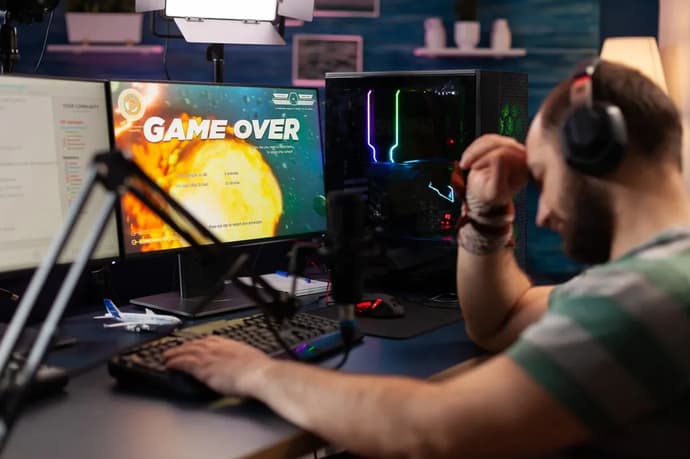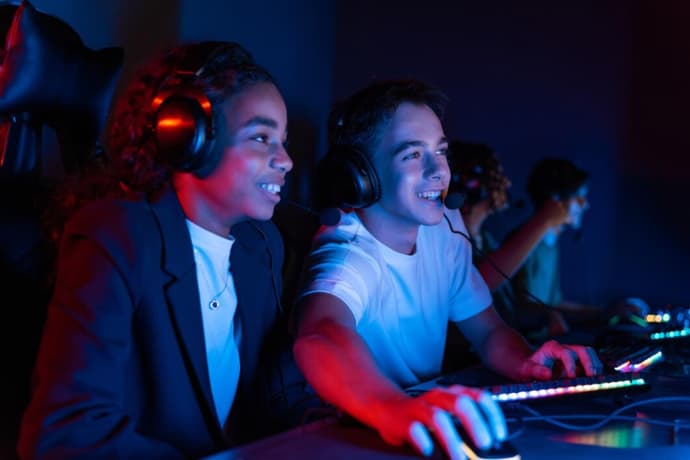
The Psychology of Victory: How Esports Players Stay Calm Under Pressure

Esports has evolved into a global phenomenon, merging intense competition with jaw-dropping technical skill. Unlike traditional sports, esports adds another layer of complexity: the digital world’s speed and precision demand split-second decisions under immense pressure. Whether it’s the final seconds of a Counter-Strike 2 match or the decisive fight in Dota 2, the mental fortitude of professional players often determines the outcome.
So, what sets esports champions apart from the average gamer? How do they navigate the tension of multi-million-dollar tournaments while maintaining peak performance? Let’s explore the strategies they use to turn stress into an ally rather than an enemy.
The Mental Challenges of Esports
High-level esports players face a unique blend of mental and emotional demands. It’s not just about outplaying the opponent but doing so with thousands (sometimes millions) of fans watching and analyzing every move. Stressors include:
- Split-second decision-making: The need to process and react to game-changing events instantly.
- High stakes: Prize pools worth millions of dollars and career-defining moments.
- External pressure: Expectations from fans, sponsors, and their own teams.
Without proper mental conditioning, these stressors can lead to burnout, poor performance, or what many call “choking” during critical moments.
Techniques Esports Players Use to Stay Calm
1. Pre-Match Rituals
Rituals create a sense of control in unpredictable environments. For esports players, these routines can include warming up with aim trainers, meditating, stretching, or listening to music. These rituals act as mental cues, signaling the brain to focus while reducing anxiety.
For example, many Counter-Strike 2 players spend hours honing their accuracy in aim maps before matches. This familiar routine not only sharpens reflexes but also calms nerves by reinforcing their confidence in their skills.
2. In-Game Communication

In team-based games like Valorant or League of Legends, communication is a cornerstone of success. Esports teams practice calm, concise communication, ensuring they can relay critical information under pressure. Staying composed while delivering instructions or feedback helps keep the team focused and minimizes panic.
Teams often review replays of their matches to refine their communication, identifying moments where clearer calls could have improved outcomes. This constant practice builds trust and keeps everyone aligned, even in high-stakes moments.
3. Mental Conditioning
Professional players treat their mental game as seriously as their mechanical skills. Techniques like visualization, mindfulness, and controlled breathing are widely used to manage pressure.
- Visualization: Mentally rehearsing potential scenarios helps players prepare for the unexpected, building confidence in their ability to handle tough situations.
- Controlled breathing: Techniques such as the “box breathing” method (inhaling, holding, exhaling, and pausing for equal counts) reduce stress by regulating heart rate.
- Mindfulness: Staying present during matches prevents players from dwelling on past mistakes or future outcomes, ensuring they remain fully engaged in the moment.
4. Focusing on the Process, Not the Outcome
One of the biggest pitfalls for players is becoming fixated on the result—whether that’s winning or losing. Champions shift their mindset to focus on executing strategies and making the best possible decisions in the moment.
This process-oriented approach allows players to stay calm, even when the game doesn’t initially go their way. For example, Dota 2 players often adapt their strategies mid-match, relying on this ability to stay present and responsive.
5. Staying Composed Like a Roulette Player
The principles esports players use aren’t exclusive to gaming. For example, the world of gambling offers similar lessons. Consider roulette wheel games, where every spin requires a mix of calculated risk and emotional control. Much like in esports, the ability to stay composed and make smart decisions under uncertainty can turn the tide in your favor. To learn more about the strategies behind mastering this type of pressure, check out roulette wheel games.
Building Resilience Through Experience
Learning from Defeat
Every esports player faces losses—it’s an inevitable part of competition. The best players, however, treat defeats as opportunities to grow. They analyze their mistakes, refine their strategies, and return stronger. This resilience is often what sets champions apart from those who falter under pressure.
The Importance of Support Systems
Even in solo games like StarCraft II, no player succeeds alone. Coaches, analysts, and even psychologists play a pivotal role in helping players navigate the mental challenges of competitive gaming. These support systems offer perspective, emotional encouragement, and actionable advice, enabling players to maintain their composure.
Why Mental Fortitude Matters
In esports, a single mistake can cost a match—but staying calm can lead to brilliant recoveries and game-winning plays. The ability to handle pressure isn’t just about avoiding failure; it’s about unlocking potential in the most critical moments.
Esports players prove that mental fortitude, much like mechanical skill, can be trained and perfected. Their success under pressure serves as inspiration, not just for aspiring gamers but for anyone looking to thrive in high-stakes environments.
By mastering the mind, esports champions show us that victory begins long before the game even starts.

Elen Stelmakh is a creative individual dedicated to advancing gaming culture through articles and visual design. As a full-time EGamersWorld author and designer for a gaming website, Elen not only creates content but also infuses it with energy and creativity.
 Arc Raiders New Map Event Shrouded Sky Overview: Start Date, Exact Time & DetailsThe Arc Raiders Shrouded Sky release date is set for February 24, 2026, bringing a new Hurricane map event and more to the game.
Arc Raiders New Map Event Shrouded Sky Overview: Start Date, Exact Time & DetailsThe Arc Raiders Shrouded Sky release date is set for February 24, 2026, bringing a new Hurricane map event and more to the game.
 Hytale: Backpack Crafting Recipe & GuideHere is your guide on how to craft a backpack in Hytale, expanding your inventory for greater adventures in Orbis.
Hytale: Backpack Crafting Recipe & GuideHere is your guide on how to craft a backpack in Hytale, expanding your inventory for greater adventures in Orbis.
 Roblox Anime Guardians Codes February 2026Discover all working Roblox Anime Guardians codes. Redeem for free Mystic Coins, Trait Rerolls, Artifacts, and rewards.
Roblox Anime Guardians Codes February 2026Discover all working Roblox Anime Guardians codes. Redeem for free Mystic Coins, Trait Rerolls, Artifacts, and rewards. Non-UK Online Casinos: Games, Formats, and What Players Can ExpectOnline casinos operating outside the UK gambling framework attract attention due to differences in licensing models, game portfolios, and promotional...
Non-UK Online Casinos: Games, Formats, and What Players Can ExpectOnline casinos operating outside the UK gambling framework attract attention due to differences in licensing models, game portfolios, and promotional...





